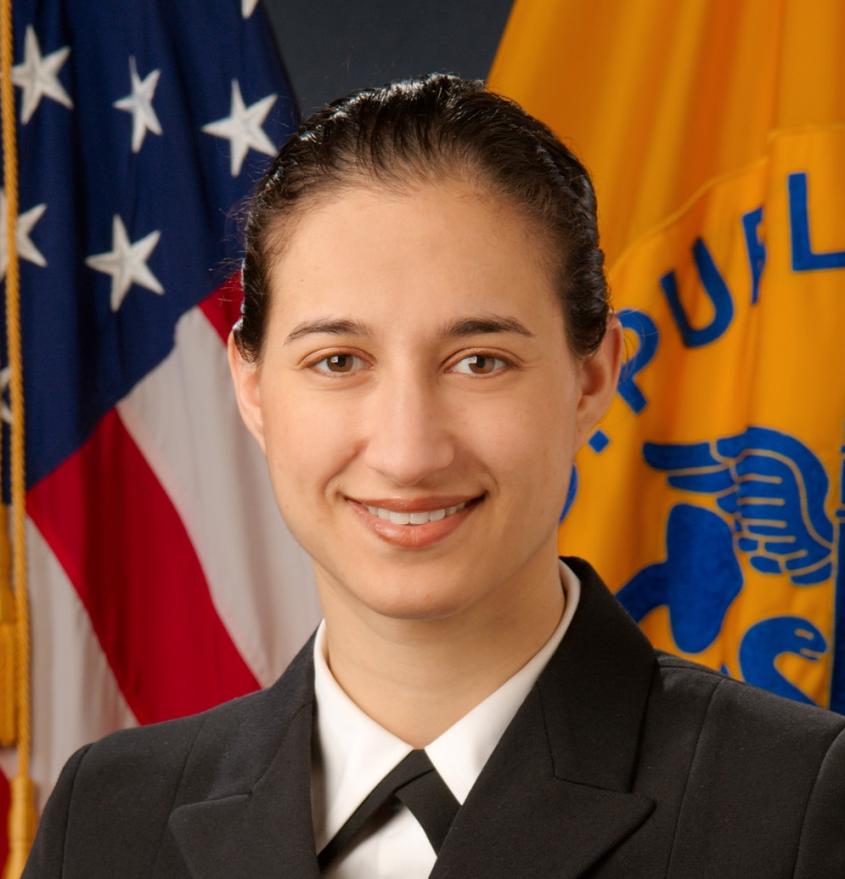Alumna wins award from American Veterinary Epidemiology Society
Ilana Schafer, D.V.M. ’08, a veterinary epidemiologist with the U.S. Centers for Disease Control, was awarded the prestigious Early Career Professional Achievement Award this summer from the American Veterinary Epidemiology Society (AVES) for her work on the epidemiology of high-hazard infectious diseases including Ebola and leptospirosis.
Schafer has worked across the globe to respond to infectious disease outbreaks and prevent their spread, including spending time in Africa during Ebola outbreaks and in Puerto Rico working on leptospirosis after hurricanes Irma and Maria devastated the Caribbean.
“Her determined, unwavering dedication and service to prevent infection and severe outcomes to these deadly diseases, in the wake of disaster, is truly remarkable,” Dr. Henry Walke, director of the Center for Preparedness Response at the CDC, wrote in her nomination letter.
Schafer’s work in epidemiology began in 2012 with a two-year Epidemic Intelligence Service Fellowship at the CDC. Her fellowship coincided with a series of Ebola outbreaks in Africa, and she was deployed to help contain the outbreaks, which involves extensive contact tracing.
“You start by trying to figure out where the person got sick,” she said. “You’re looking backwards at who they came into contact with and you’re looking forward trying to figure out where they may have spread it. The goal is to identify all the Ebola cases that you can. When I started, all of this was managed in Excel spreadsheets.”
Schafer quickly discovered the administrative work of setting up case and contract tracing databases slowed the public health response to an outbreak. She came up with a solution: a software application called the Epi Info Viral Hemorrhagic Fever Application that organizes and manages Ebola case and contact tracing data more efficiently. The app allowed international health officials to make data-driven decisions about how best to contain the outbreak.
“The software connected people to each other to figure out the chain of transmission,” she explained. “You would enter the data of who had contact with who when, and it would spit out who you needed to touch base with every day.”
After coming up with the idea, Schafer transferred to the CDC’s Division of Health Informatics and Surveillance, where she worked on refining and distributing the software and training public health experts to use it in the midst of the 2014-2015 West African Ebola epidemic.
“This application was used to manage data for Ebola outbreaks in seven African countries and two U.S. states, and enabled reporting of compatible outbreak data from multiple countries at an international level,” explained Alfonso Torres, professor emeritus of College of Veterinary Medicine who nominated Schafer for the award.
The CDC still uses Schafer’s original application. In addition, the World Health Organization’s Global Outbreak Alert and Response Network picked up the concept and created the next generation, which is still in use today.
After her work on Ebola, Schafer became the CDC’s subject matter expert in leptospirosis for six years. Leptospirosis is bacterial disease that spread between animals, humans, and the environment through urine. It can survive in warm water, and typically outbreaks occur after floods after hurricanes where there is urine-contaminated water.
In her new role, Schafer was responsible for public health education, surveillance, and research. Over six years, she led five international and nine domestic projects to prevent the spread of leptospirosis and responded to 10 outbreaks, including a major outbreak in Puerto Rico in 2017 after Hurricanes Irma and Maria. After the immediate response in Puerto Rico, she developed a two-year plan that included partnering with local health departments, non-governmental organizations, and academic institutions to prevent and track the spread of the disease. Her work helped to secure $10 million in Congressional funding to work in Puerto Rico and the U.S. Virgin Islands to learn more about the disease and better prepare for future disasters.
This summer, Schafer started a new role at the National Public Health Institutes Program, where she works to help other countries build national public health institutes. She’ll bring her experiences working in the field to help other countries develop systems that prevent disease. “In the ten years I’ve been working in public health, I hope I’ve made a difference,” she said.
Written by Sherrie Hall






